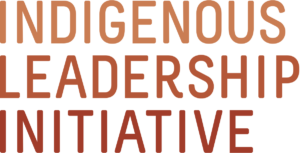Canadians Want Economic Recovery to Include Conservation & Indigenous Stewardship
INDIGENOUS LEADERSHIP INITIATIVE
Poll: Canadians Want Economic Recovery to Include Nature Conservation & Indigenous Stewardship
Ottawa: July 7, 2020: As the country focuses on restoring public health and the economy in the face of COVID-19, most Canadians continue to want the federal government to prioritize nature protection. According to a new poll, they view conservation as an important part of economic recovery. And nearly three in four Canadians support federal investment in Indigenous stewardship—including Indigenous Guardians and Indigenous Protected and Conserved Areas—to help create jobs, build prosperity, and meet Canada’s conservation commitments.
The poll, conducted by Pollara Strategic Insights for the International Boreal Conservation Campaign and the Indigenous Leadership Initiative, sampled 3,019 Canadians between June 8 and 10, 2020. It found:
Resounding Support for Meeting Conservation Targets: 84% of Canadians want the federal government to invest in commitments to protect 30% of lands by 2030.
Broad Support for Nature Conservation in Economic Recovery: More than 70% of Canadians think it’s important to include nature conservation in economic revitalization planning.
Most View Indigenous-led Conservation as Good for Economy: 72% believe the government should invest in Indigenous stewardship as part of the economic recovery. Support deepens when Canadians learn the economic and cultural benefits of Indigenous Guardians and Indigenous Protected and Conserved Areas.
Most Want to Rethink Economy: Only 16% of Canadians want to go back to the pre-COVID economy. Seven-in-ten want to rebuild while introducing change – either through the addition of some new approaches (39%) or a fundamental transformation (33%).
“This poll shows there is a strong appetite for changing how the economy works,” said Valérie Courtois, the director of the Indigenous Leadership Initiative. “Investing in Indigenous-led conservation is part of building a more equitable and sustainable economy. It protects lands and waters, and at the same time, it helps strengthens Indigenous communities and transform regional economies.”
Pollara also conducted a survey for IBCC in March 2020 that found Canadians resoundingly favoured protecting 30% of lands by 2030 and investing in Indigenous-led conservation. That support remains strong despite seismic health and economic disruptions since then.
“What stands out in the data is the public’s consistent support for nature conservation,” said Craig Worden, president of Pollara Strategic Insights. “Historically, support for environmental action has often ebbed during national crises like recessions. Yet, despite the unprecedented impact and challenge of COVID-19, this support continues to flow. Most Canadians remain unwavering in their view that protecting nature and investing in Indigenous-led conservation should remain a priority for the federal government.”
A summary of key findings is available here.
A full report of the survey results is available here.
Media Contact:
Sean Durkan: sean.sda.inc@rogers.com (613-851-2151)
___________________________________________________________________________________
The International Boreal Conservation Campaign is a collaboration of multiple organizations that has been working for two decades on the shared goal of balancing strong protections and responsible development throughout the Boreal Forest.
The Indigenous Leadership Initiative is a network dedicated to supporting Indigenous Nations in honouring the cultural responsibility to lands and fostering Indigenous Nationhood. It works with dozens of First Nations to support their stewardship.
Pollara Strategic Insights is one of Canada’s premier full-service research firms – a collaborative team of senior research veterans who are passionate about conducting research through hands-on creativity and customized solutions. Pollara provides research-based strategic advice to a wide array of clients across all sectors on a local, national, and global scale.

